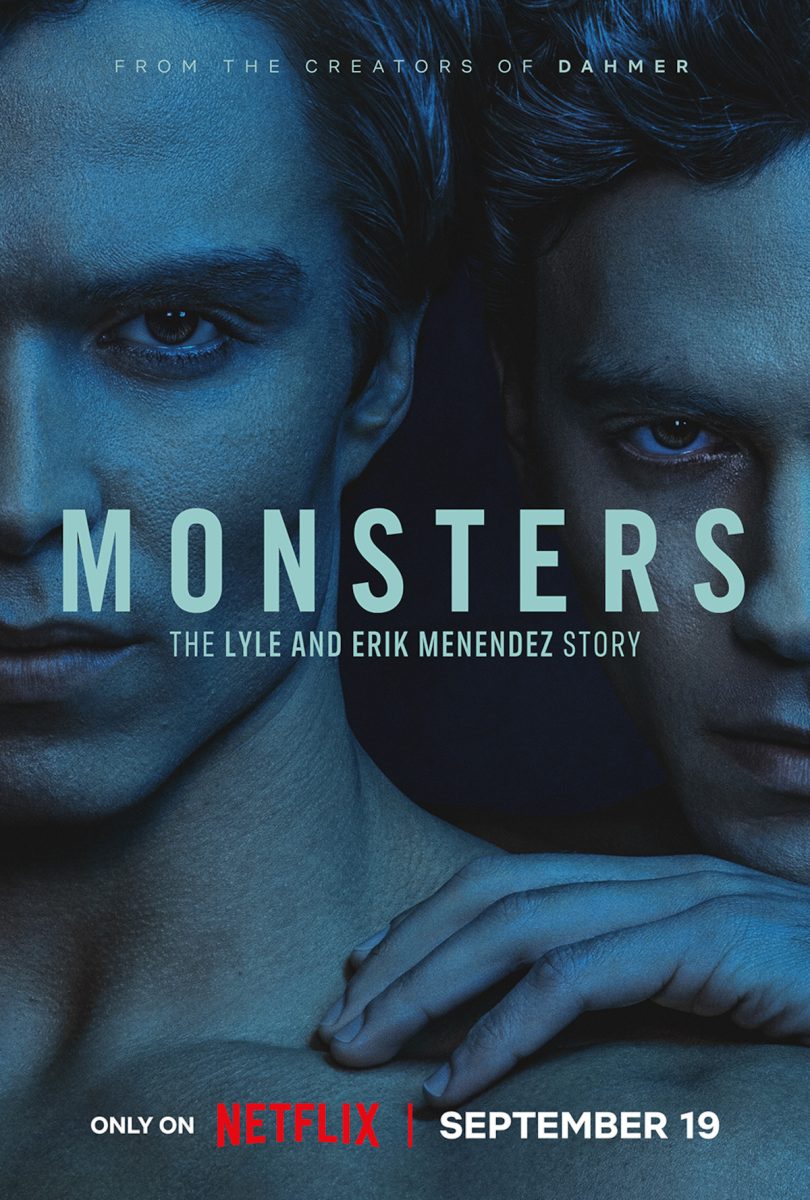Content Warning: The following contains mentions of sexual violence
August 20th, 1989, Erik and Lyle Menendez brutally killed their parents, Jose and Kitty Menendez, with shotguns in their Beverly Hills mansion. In court, the brothers’ defense attorneys argued that they acted in self-defense after years of physical, emotional, and sexual abuse. However, prosecutors argued that the murders were premeditated, and that the brothers were motivated by hatred and the desire to inherit their father’s fortune. Erik and Lyle were convicted of 1st degree murder and sentenced to life in prison without parole. Just 18 and 21 at the time of the shooting, Erik and Lyle, now 53 and 56, currently remain at the Richard J. Donovan Correctional Facility in San Diego, California.
But what if I told you, that 35 years after the murder, the Menendez brothers might just be back. “Los Angeles County’s district attorney said Thursday he’ll recommend that a judge resentence Lyle and Erik Menendez nearly 30 years after the brothers were convicted of the murders of their parents – a recommendation that he said would make them eligible for immediate parole (CNN).”
The potential resentencing happens to be supported by the culmination of new evidence. “Among the new evidence the 2023 petition asked a court to consider: a sworn statement by former Menudo boy band member Roy Rosselló, who alleged Jose Menendez sexually assaulted him in the 1980s. The attorneys also said a letter Erik Menendez wrote to a cousin months before the killings alludes to the abuse he endured (CNN).”
But why now? Why several of decades after the original sentencing do these murders find their way back into the public eye?
The Slate asserts, “Suddenly, they are having a moment. There’s a miniseries about them on Netflix. There’s a documentary, too. And there’s been a ton of TikTok videos made by people who are openly wondering: Should these two men still be behind bars?”
Grace Carroll, a West Seattle High School student, mentions, “I didn’t know who they were before the show, I just saw them all over Instagram reels.”
‘Monsters: The Lyle and Erik Menendez story’, a nine-episode crime drama series about the brothers’ murder of their parents, is no doubt entertaining and bingeworthy, becoming one of Netflix most watched shows since its release September 19th. However, naturally, questions have presented which surround the accuracy of the show, not to mention, the ethics of it. “The real Erik Menendez said in a statement that the dramatized Netflix anthology contains ‘vile and appalling character portrayals’ and ‘blatant lies’ about himself and his brother, Lyle. However, showrunner Ryan Murphy insists the criticism isn’t justified (Biography).”
Kate Russell, a West Seattle High School student who watched the series, states, “Yeah, I liked the show. I know a lot of people are mad about it because of the way it portrays them, but I think it was really entertaining and informative.”
Of course, it’s hard to really know what the truth is and isn’t, yet, we do have the ability to acknowledge the morality and ethics in the nature of the series. The audience seems to be split; some praise the show for the light it has shed on the brothers’ traumatic upbringing, however, others criticize it for turning their tragedy into dramatic entertainment.
In commonality with the majority of true crime shows, ‘Monsters’ portrayal of the Menendez brothers has contributed to a sexualized depiction of the two. “Fan-made clips across platforms like TikTok frequently emphasize the real-life brothers’ emotional vulnerability and physical appearance, which have shifted the narrative from one of trauma and victimhood to glamorizing abuse victims (The Swanston Gazette).” This raises concerns as to how the media can potentially blur the lines between truth and entertainment, overshadowing the seriousness of those traumatic experiences.
Notably, since the murders in 1989, how society views sexual assault and sexual abuse victims has changed dramatically, especially for men. Toxic masculinity in our society has built a stigma around male sexual assault victims. Though being in the minority of victims, sexual abuse targeted at men is still very prevalent, not to mention, worsened by the stigmatic belief it will damage a man’s masculinity, or in some cases, reveal sexuality. For instance, until 1994, the United Kingdom’s legal definition of rape was limited to biological women. Yet now, the Falconer reports, “There seems to be a move in the right direction to support those who identify as men coming out about their assault stories.” Over time, the view on sexual assault victims has shifted from being largely disregarded to a growing recognition that men can be sexual assault victims, too. Nevertheless, barriers to reporting still exist because of social expectations for men to suppress emotions (resulting to anger), avoid vulnerability, and not ask for help.
Referring to the trial, Grace Carroll notes, “I think that views on sexual violence towards men have changed over time and it’s affected the public opinion on the case.” The increase in men who are willing to express emotion, including an increase in people that will listen, is a leading factor as to why hearing out Erik and Lyle, two well-known sexual violence victims, has prevailed in the media.
During my research, I was curious as to understand the general opinion of someone who was a teenager during the trials, compared to those of teenagers now- who are invested in the series, documentary, and online content depicting the Menendez story.
Choosing to remain anonymous, the interviewee said that they had not seen any current media about the Menendez case, as well as, though the trials were aired at the time, they had chosen not to watch them. “I’ve always believed they were in the wrong and that they plotted to kill their parents. Nothing could ever right that decision. Everyone talking about it at the time blamed the brothers.” I asked if they were aware that Erik and Lyle had been sexually violated by their parents, and they responded, “No, I didn’t know they were sexually assaulted. Has that been proven?”, they questioned, “Does that justify killing them?”
Their response I found contrasted greatly with the younger generation today. Kate Russell, 16, argued, “I think they deserve a retrial. When they had to move courts in the first trial, it was really unfair. The judge was biased and didn’t hear out their lawyer.” Furthermore, Grace Carroll, also 16, stated, “After hearing about the abuse and what they went through as kids, that their mom didn’t do anything to protect them, and what their dad did to both of them. It was violent and cruel.”
But the overlying question still hasn’t been answered: Should Erik and Lyle Menendez still be behind bars? And unfortunately, I don’t think that question can confidently be answered.
The Erik and Lyle Menendez case was one of the first trials to be televised. And although this case brought much-needed attention onto male sexual abuse victims, the worry over the public position and media outlook casted a shadow on the real truth. I think the court should observe and take that mistake into consideration, so that when a deserved retrial takes place, we will leave the sentencing up to the judge and jury, rather than TikTok and Netflix, meaning, keeping it hidden from the public.






